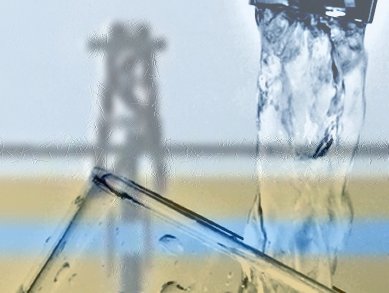Kevin A. Schug, University of Texas at Arlington, USA, and colleagues present an assessment of private well water quality in aquifers overlying the Barnett Shale formation of North Texas, one of the most heavily drilled shale formations in the United States. They sampled 100 private drinking water wells using analytical chemistry techniques and compared their data to a historical dataset from the same aquifers prior to the expansion of natural gas extraction activities.
Arsenic, selenium, strontium and total dissolved solids (TDS) exceeded the Environmental Protection Agency’s Drinking Water Maximum Contaminant Limit (MCL) in some samples located within 3 km of active natural gas wells. Lower levels of arsenic, selenium, strontium, and barium were detected at reference sites outside the Barnett Shale region. Also sites within the Barnett Shale region located more than 3 km from active natural gas wells showed lower levels.
Methanol and ethanol were also detected in 29 % of samples, but no historical reference data are aveilable for these substances.
Samples exceeding MCL levels were randomly distributed within areas of active natural gas extraction, so elevated constituent levels could be due to a variety of factors including mobilization of natural constituents, hydrogeochemical changes from lowering of the water table, or industrial accidents such as faulty gas well casings.
However, the data suggest that private wells located near natural gas wells may be at higher risk for elevated levels of constituents than those located further from natural gas wells. The researchers suggest regular water monitoring utilizing targeted analytical chemistry along with toxicity assays to understand the complex interactions among groundwater constituents and biological organisms.
- An evaluation of water quality in private drinking water wells near natural gas extraction sites in the Barnett Shale Formation,
Brian E Fontenot, Laura R Hunt, Zacariah Louis Hildenbrand, Doug D Carlton, Hyppolite Oka, Jayme L Walton, Dan Hopkins, Alexandra Osorio, Bryan Bjorndal, Qinhong Hu, Kevin Albert Schug,
Environ. Sci. Technol. 2013.
DOI: 10.1021/es4011724



